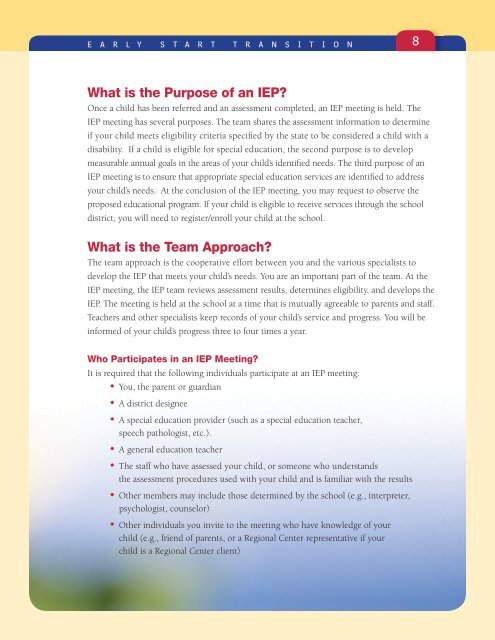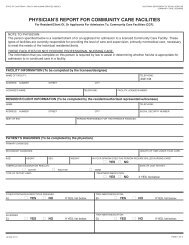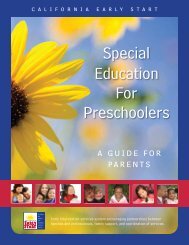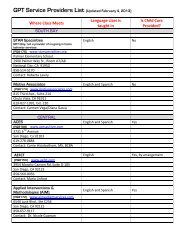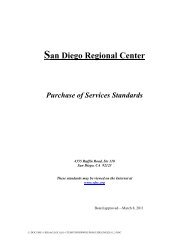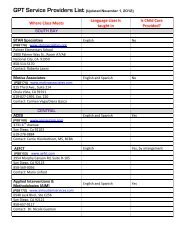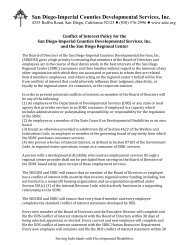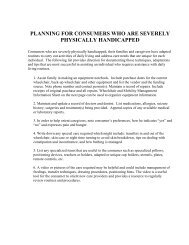Special Education For Preschoolers - San Diego Regional Center
Special Education For Preschoolers - San Diego Regional Center
Special Education For Preschoolers - San Diego Regional Center
You also want an ePaper? Increase the reach of your titles
YUMPU automatically turns print PDFs into web optimized ePapers that Google loves.
E A R L Y S T A R T T R A N S I T I O N 8<br />
What is the Purpose of an IEP<br />
Once a child has been referred and an assessment completed, an IEP meeting is held. The<br />
IEP meeting has several purposes. The team shares the assessment information to determine<br />
if your child meets eligibility criteria specified by the state to be considered a child with a<br />
disability. If a child is eligible for special education, the second purpose is to develop<br />
measurable annual goals in the areas of your child’s identified needs. The third purpose of an<br />
IEP meeting is to ensure that appropriate special education services are identified to address<br />
your child’s needs. At the conclusion of the IEP meeting, you may request to observe the<br />
proposed educational program. If your child is eligible to receive services through the school<br />
district, you will need to register/enroll your child at the school.<br />
What is the Team Approach<br />
The team approach is the cooperative effort between you and the various specialists to<br />
develop the IEP that meets your child’s needs. You are an important part of the team. At the<br />
IEP meeting, the IEP team reviews assessment results, determines eligibility, and develops the<br />
IEP. The meeting is held at the school at a time that is mutually agreeable to parents and staff.<br />
Teachers and other specialists keep records of your child’s service and progress. You will be<br />
informed of your child’s progress three to four times a year.<br />
Who Participates in an IEP Meeting<br />
It is required that the following individuals participate at an IEP meeting:<br />
• You, the parent or guardian<br />
• A district designee<br />
• A special education provider (such as a special education teacher,<br />
speech pathologist, etc.).<br />
• A general education teacher<br />
• The staff who have assessed your child, or someone who understands<br />
the assessment procedures used with your child and is familiar with the results<br />
• Other members may include those determined by the school (e.g., interpreter,<br />
psychologist, counselor)<br />
• Other individuals you invite to the meeting who have knowledge of your<br />
child (e.g., friend of parents, or a <strong>Regional</strong> <strong>Center</strong> representative if your<br />
child is a <strong>Regional</strong> <strong>Center</strong> client)


